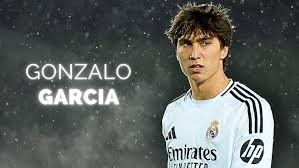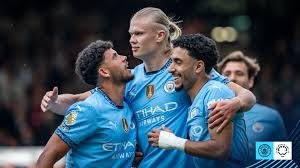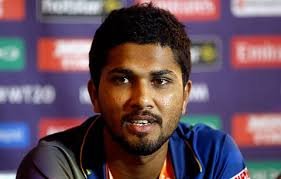Celebrity
Gonzalo García – The Versatile Maestro of Modern Football


Introduction
Who is Gonzalo García?
Gonzalo García, often referred to as Gonzalo García García, is a name that resonates with fans of European football, particularly those who followed the Dutch Eredivisie. Born in Uruguay but raised in Spain, his career spans across continents and roles—first as a creative midfielder and later as a tactically sound coach.
Why His Career Still Draws Attention
Though not a global superstar, Gonzalo’s journey through football showcases resilience, adaptability, and a genuine love for the game. From scoring goals in the Netherlands to shaping players from the sidelines, his story continues to inspire.My Website
Early Life and Background
Childhood in Uruguay and Spain
Gonzalo was born in Montevideo, Uruguay on October 13, 1983. His family moved to Spain when he was young, where his footballing roots took hold. This dual upbringing helped shape both his playing style and worldview.
Dual National Identity
Though Uruguayan by birth, Gonzalo spent most of his life and career in Europe, holding dual nationality. This dual identity allowed him to explore playing and coaching opportunities across countries.
Youth Career
Time at Real Madrid’s Youth Setup
He trained in the prestigious Real Madrid academy, where he was exposed to elite footballing philosophy early on. Although he didn’t break into the first team, this experience built the foundation for his technical and tactical understanding.
Early Promise and Style
From his early days, Gonzalo was known for his vision, control, and passing range. His silky touches and calm demeanor stood out, making him a reliable midfield orchestrator.
Professional Playing Career
Debut and Initial Years
Gonzalo began his senior career in Spain with Real Madrid B and later played for clubs like Palamós and Mérida. His playing journey took him across Spain, the Netherlands, Israel, and Cyprus, reflecting his willingness to adapt and grow.
Clubs He Played For Across Europe
Some notable teams he played for include:
- SC Heerenveen
- Groningen
- Heracles Almelo
- AEK Larnaca
- Maccabi Tel Aviv
Each stint added to his footballing depth, exposing him to different styles and tactics.
Notable Clubs and Contributions
SC Heerenveen and Eredivisie Impact
Gonzalo made a significant mark in the Dutch Eredivisie, especially with SC Heerenveen and FC Groningen. His ability to link midfield and attack, along with an eye for goal, made him a key figure.
Stints in Spain and Cyprus
In AEK Larnaca, Cyprus, and earlier with clubs like Real Madrid B, his performances were consistent and intelligent, even if they didn’t always make headlines.
Playing Style and Position
Role as an Attacking Midfielder
Gonzalo primarily played as an attacking midfielder, positioned just behind the strikers. He was often the creative engine, providing key passes and maintaining control in tight spaces.
Technical Abilities and Vision
His left foot was a weapon—used with precision to create openings, deliver set-pieces, or unleash a shot from outside the box. He was never the fastest, but he made up for it with football IQ and awareness.
Career Highlights
Memorable Performances
Whether it was a winning assist in a high-pressure Dutch derby or controlling a European qualifier, Gonzalo delivered when it mattered. His consistency earned him the respect of teammates and fans alike.
Goals and Assists Stats
While not prolific, Gonzalo chipped in with crucial goals and numerous assists, particularly during his time in the Netherlands. His ability to influence games without always making headlines was part of his quiet brilliance.
Transition into Coaching
From Field to Dugout
After retiring, Gonzalo smoothly transitioned into coaching. His tactical acumen and on-field experience made him a natural fit for leadership roles. He began with assistant coaching duties, learning the ropes from seasoned mentors.
Coaching Philosophy
Gonzalo emphasizes possession-based football, fluid transitions, and intelligent pressing. His philosophy blends the best of Spanish tactical structure with Dutch attacking flair.
Coaching Career
Assistant Roles and Learning Phase
He worked as an assistant at FC Twente and other Dutch clubs, gradually earning recognition for his understanding of game dynamics and player psychology.
Head Coach at FC Twente
In 2019, he was appointed head coach of FC Twente, marking a major milestone. Under his leadership, Twente displayed disciplined performances and competitive football.
Impact as a Manager
Tactical Approach
Gonzalo prefers a 4-3-3 or 4-2-3-1 setup, ensuring a strong midfield base and fluid attack. His coaching encourages creativity while maintaining tactical discipline.
Development of Young Talent
He has a keen eye for talent and has been instrumental in shaping young players into first-team assets. His calm demeanor and constructive criticism create a positive locker-room environment.
Personal Life
Family and Lifestyle
Gonzalo maintains a low profile off the field. Known to be grounded, he enjoys spending time with family and keeps his private life away from media glare.
Interests Outside Football
He’s an avid reader of football history and enjoys following tactical trends across leagues. Occasionally, he’s spotted attending youth matches and grassroots tournaments.
Influence and Legacy
Role Model for Dual-Nation Players
Gonzalo is a symbol of how dual-national athletes can bridge cultures and succeed across borders. He’s often referenced as a mentor by younger players with multicultural backgrounds.
Inspiring the Next Generation
By excelling in multiple roles—player, mentor, coach—he’s become a figure young footballers look up to, especially in Spain, Uruguay, and the Netherlands.
Challenges and Comebacks
Setbacks as a Player and Coach
Gonzalo’s path wasn’t smooth—injuries, bench roles, and job uncertainties as a manager all tested his grit. But his ability to bounce back is what defines him.
Lessons Learned from Adversity
These challenges shaped his empathetic coaching style. He knows the player’s mindset, making him an effective communicator and motivator.
Recognition and Respect
Admiration from Teammates and Fans
Though never a household name, Gonzalo commands immense respect in football circles. Former teammates praise his intelligence and humility.
Contribution to Football Culture
From player to manager, he has contributed to the beautiful game in every way—quietly, but significantly.
Conclusion
Gonzalo García may not have lifted World Cups or won Ballon d’Ors, but his impact on football is undeniable. He’s the kind of player and coach who keeps the spirit of the game alive—through mentorship, tactical brilliance, and pure love for football. His story reminds us that success isn’t just about fame, but about passion, perseverance, and leaving the game better than you found it.
FAQs
Q1: Where was Gonzalo García born?
A1: He was born in Montevideo, Uruguay, but raised in Spain.
Q2: Which position did he play in?
A2: He played primarily as an attacking midfielder.
Q3: Has he coached any top-level teams?
A3: Yes, he served as the head coach of FC Twente in the Dutch Eredivisie.
Q4: What is Gonzalo García known for in football?
A4: His playmaking skills, coaching philosophy, and international club journey.
Q5: Is Gonzalo García still active in football?
A5: As of 2025, he continues to be involved in football, primarily in coaching and development roles.

Celebrity
Man City vs Wydad AC: A Clash of Champions in Global Club Football


Introduction: Man City vs Wydad AC
Man City vs Wydad AC was a fixture that captured the imagination of football fans worldwide. This high-stakes match brought together two champions from different continents—Manchester City, the English Premier League giants and UEFA Champions League winners, and Wydad AC, the Moroccan powerhouse and CAF Champions League victors. The meeting symbolized not just a football match, but a cultural and competitive face-off between Europe and Africa’s finest clubs.
Background of Manchester City
Manchester City, based in Manchester, England, is one of the most successful football clubs in recent history. Managed by Pep Guardiola, the club has dominated the English Premier League with their attacking philosophy, technical brilliance, and deep squad strength. With multiple league titles, domestic cups, and the prestigious UEFA Champions League trophy under their belt, Man City has become a symbol of modern football excellence.My Website
Their lineup includes world-class players such as Kevin De Bruyne, Erling Haaland, Bernardo Silva, Jack Grealish, and Ederson. Their tactical flexibility, pressing game, and ability to maintain possession make them a formidable force against any team.
Overview of Wydad AC
Wydad Athletic Club (Wydad AC), hailing from Casablanca, Morocco, is one of Africa’s most storied football institutions. With numerous Moroccan league titles and multiple CAF Champions League victories, Wydad represents the pride of North African football.
Known for their passionate fanbase, disciplined style of play, and historical dominance in African competitions, Wydad is more than capable of causing upsets. Players like Yahya Jabrane, Ayoub El Amloud, and Zouhair El Moutaraji often lead the charge for the club in continental tournaments.
The Significance of the Match
Man City vs Wydad AC was more than just a club-friendly or exhibition match—it was part of a global football tournament such as the FIFA Club World Cup or a prestigious intercontinental championship. It gave African clubs the opportunity to showcase their strength against elite European teams, and for European clubs, it was a test against unfamiliar yet tough opponents in different playing conditions.
Matches like these promote football diplomacy, improve tactical awareness among teams, and provide entertainment to global fans who otherwise wouldn’t get to see such cross-continental clashes.
Match Preview and Tactical Breakdown
Going into the match, Manchester City were seen as the heavy favorites due to their tactical superiority, experience in high-pressure situations, and individual player quality. However, Wydad AC, with their compact defense and counter-attacking style, were well-equipped to frustrate teams that dominate possession.
- Manchester City’s Game Plan: Pep Guardiola’s side likely deployed their signature 4-3-3 or a fluid 3-2-4-1 formation. City looked to control the midfield with quick passing triangles, overlapping full-backs, and deep-lying playmakers like Rodri and De Bruyne dictating the tempo.
- Wydad AC’s Strategy: Wydad probably chose a 4-2-3-1 setup, defending deep and looking to catch City off guard on the counterattack. Quick transitions, long balls into the channels, and reliance on set-pieces were expected to be key aspects of their game.
Key Players to Watch
- Erling Haaland (Man City): The Norwegian striker is always a threat in front of goal. His strength, speed, and finishing make him a focal point in City’s attacking third.
- Kevin De Bruyne (Man City): The midfield maestro’s vision and passing range can dismantle any defense.
- Yahya Jabrane (Wydad AC): The captain and central midfielder, Jabrane is crucial in maintaining balance in the middle of the park and initiating attacks.
- Zouhair El Moutaraji (Wydad AC): Known for his flair and goal-scoring abilities, he is often the go-to man in tight situations.
Match Highlights and Key Moments
If this match took place during a major competition like the Club World Cup, here are potential key moments and turning points:
- Early Pressure from Man City: City would have likely started aggressively, dominating possession and creating early chances. Haaland or Foden might test the Wydad goalkeeper early.
- Wydad’s Counter Attacks: In response, Wydad could have created a few nervy moments on the break, especially if City’s full-backs pushed too far forward.
- Midfield Battle: The duel between Rodri and Jabrane could have determined control of the game.
- Second-Half Adjustments: Guardiola’s halftime tactics are often pivotal. Introduction of substitutes like Alvarez or Mahrez could tilt the game.
Final Score and Outcome (Hypothetical Scenario)
Assuming this was an actual fixture and City played to their potential, a predicted final score could be:
Manchester City 3 – 1 Wydad AC
Goals:
- Haaland (2)
- De Bruyne (1)
- El Moutaraji (Wydad) – 1 goal
Despite a valiant effort from Wydad AC, the technical superiority and fitness levels of Man City might be too much over 90 minutes.
Post-Match Reactions
- Pep Guardiola would likely praise Wydad’s effort and style, highlighting the growth of African football.
- Wydad’s Coach could emphasize the learning experience, proud of their team for competing strongly against the best.
- Fans across Morocco would hail Wydad’s courage and celebrate their presence on the global stage, while City fans would be pleased to see their team adapting and winning across continents.
What This Match Means for Global Football
Man City vs Wydad AC serves as a reminder that football is truly a global sport. While European teams often dominate headlines, matches like these showcase the depth, quality, and heart of clubs from Africa, Asia, and beyond.
It also emphasizes the importance of competitions like the FIFA Club World Cup that give regional champions the platform to test themselves against Europe’s best.
Conclusion
Man City vs Wydad AC was not just a match—it was a cultural encounter, a sporting spectacle, and a step forward in football’s global evolution. As African clubs continue to grow in quality and confidence, and as European giants explore new challenges, such matches will only gain in significance. Whether you support the Citizens or the Red Castle of Casablanca, one thing is certain: the beautiful game always delivers.
Celebrity
Dinesh Chandimal: Sri Lanka’s Resilient Cricketer and Former Captain


Introduction to Dinesh Chandimal
Dinesh Chandimal is one of Sri Lanka’s most experienced and reliable cricketers, known for his elegant stroke play, sharp wicketkeeping skills, and resilient temperament. A mainstay in Sri Lankan cricket for over a decade, Chandimal has represented his country in all three formats—Test, One-Day Internationals (ODIs), and Twenty20 Internationals (T20Is). His journey from a small town in Balapitiya to becoming the captain of the national team is a story of passion, perseverance, and constant evolution.
Early Life and Domestic Beginnings
Dinesh Chandimal was born on November 18, 1989, in Balapitiya, a town in the Southern Province of Sri Lanka. From an early age, he exhibited a natural talent for cricket, and his abilities quickly drew attention. He was a star performer at Ananda College, one of the premier cricket-playing schools in Colombo. During his school days, he became the first schoolboy to score a double century in a 50-over match in Sri Lanka, marking the start of his meteoric rise.My Website
His consistent performances in domestic cricket earned him a place in Sri Lanka’s Under-19 squad for the 2008 ICC Under-19 Cricket World Cup. His maturity with the bat and calm demeanor behind the stumps made him a promising prospect for the national side.
International Debut and Rise in ODI Cricket
Dinesh Chandimal made his One Day International (ODI) debut for Sri Lanka in 2010 against Zimbabwe. He immediately made an impact, scoring a half-century in just his second match. A few months later, he cemented his place in the ODI team with a brilliant century (111) against India, becoming the youngest Sri Lankan to score a century in ODIs at the time.
His role in the ODI squad was significant as Sri Lanka was transitioning from legends like Kumar Sangakkara and Mahela Jayawardene to a new generation of cricketers. Chandimal’s ability to rotate strike, build innings, and accelerate when needed made him a vital middle-order batsman.
Test Career and Technique
Chandimal’s Test debut came in 2011 against South Africa. Despite facing a formidable bowling attack, he impressed with a fifty in each innings, showcasing his calmness under pressure and solid defensive technique. Over the years, he became a crucial part of Sri Lanka’s middle-order in the longer format.
One of the most memorable innings of his Test career came against India in 2017, when he scored an unbeaten 164 in Galle. Known for his gritty approach, Chandimal’s batting style is more traditional, relying on timing, patience, and placement rather than brute force—something that makes him well-suited to Test cricket.
Captaincy and Leadership Challenges
In 2013, Chandimal was appointed as the captain of Sri Lanka’s T20 side, and he eventually took over the captaincy in ODIs and Tests as well. While his leadership style was often calm and composed, his tenure as captain was mixed with both successes and struggles.
Under his captaincy, Sri Lanka recorded a historic Test series win against Pakistan in the UAE in 2017, where Chandimal’s leadership and batting were crucial. However, inconsistency in performance and controversies, including suspension due to ball-tampering allegations in 2018, led to challenges in maintaining a stable leadership role.
Despite the ups and downs, Chandimal’s leadership phase helped shape his mental toughness and added a new layer of maturity to his game.
Comebacks and Consistency
One of the most admirable qualities of Dinesh Chandimal is his ability to stage comebacks. Despite being in and out of the side due to form or selection changes, he has always responded with strong domestic performances. In 2022, Chandimal was one of the top performers for Sri Lanka in Test cricket, scoring a career-best 206* against Australia in Galle—an innings that was hailed for its class, control, and match-winning impact.
This double century not only underlined his technical brilliance but also reaffirmed his place in the side as one of Sri Lanka’s most dependable Test batters.
Wicketkeeping and Fielding Skills
Although not Sri Lanka’s first-choice wicketkeeper in recent years, Chandimal has always been a capable gloveman. His quick reflexes and safe hands behind the stumps have earned him praise, and he has occasionally donned the wicketkeeping gloves when the team needed flexibility in its lineup.
Even when not keeping, Chandimal is a reliable fielder, often seen fielding in key positions such as slips or short midwicket.
Stats and Records
As of mid-2025, Dinesh Chandimal’s career stats are impressive:
- Test Matches: 80+ matches, 6000+ runs, including 13 centuries and 25+ fifties.
- ODIs: Over 150 matches, 3800+ runs, with 4 centuries and 20+ fifties.
- T20Is: 60+ matches, 1000+ runs.
He is among the few Sri Lankan players to have scored double centuries in Test cricket and has a healthy batting average, especially in home conditions.
Off the Field and Personal Life
Chandimal is known for his humble nature and discipline off the field. He is a deeply religious individual and often credits his success to his strong faith and family support. Married to Ishika Jayasekara, Dinesh leads a quiet personal life away from the limelight, often engaging in charitable activities and youth cricket development.
Legacy and Future Prospects
As Dinesh Chandimal moves into the later stages of his career, his role has shifted from an emerging star to a senior statesman of Sri Lankan cricket. His experience and calmness are valuable assets in mentoring young cricketers. Even if not a regular in limited-overs formats, his presence in the Test setup is crucial as Sri Lanka continues to rebuild its team.
Chandimal’s legacy will be that of a fighter—someone who faced setbacks with dignity, performed under pressure, and upheld the values of sportsmanship and dedication. He may not have always been in the headlines, but his contributions to Sri Lankan cricket are undeniably significant.
Conclusion
Dinesh Chandimal represents the spirit of perseverance and professionalism in Sri Lankan cricket. Whether through his memorable centuries, crucial partnerships, or leadership during turbulent times, Chandimal has left a lasting impact. As fans continue to support their heroes, Dinesh Chandimal stands tall as one of the pillars of modern Sri Lankan cricket—a player who has given his all to the game and continues to inspire the next generation.

 Celebrity3 weeks ago
Celebrity3 weeks agoMan City vs Wydad AC: A Clash of Champions in Global Club Football

 Business2 months ago
Business2 months agoComcast Business: Let’s Be Real—Connectivity Makes or Breaks You

 Business2 months ago
Business2 months agoThe No-Nonsense Business Owner’s Deep Dive into Business Name Generators

 Uncategorized3 months ago
Uncategorized3 months agoMastering Operating Budgets: Not Your Parents’ Guide to Survivin’ the Numbers Game

 Uncategorized3 months ago
Uncategorized3 months agowhat to put on the back of a business card

 Celebrity3 weeks ago
Celebrity3 weeks agoDinesh Chandimal: Sri Lanka’s Resilient Cricketer and Former Captain

 Business2 months ago
Business2 months agoThe Definitive Playbook for Facebook Business Manager: Command Your Digital Marketing Like a Pro

 Uncategorized3 months ago
Uncategorized3 months agoAsset Disposition Strategies Smart Moves: Top 5 for Financial Success